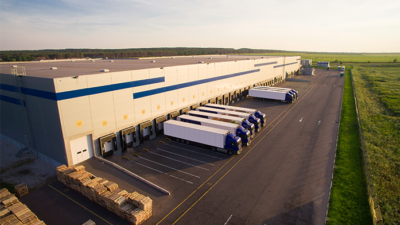- 86 biotech companies launched an IPO in 2020, per data from Crunchbase.
- They raised a total of $21.2 billion at IPO, for a total valuation of $90.3 billion.
- Developers are responding to this surging growth driver with new construction across the country.
- The nation’s two largest life science hubs, Boston and San Francisco, lead the U.S. in total space underway.
- Houston and Chicago lead with new construction as a share of existing inventory.
- Boston and San Diego led U.S. absorption in 2020.
- This asset class has investors’ attention, but the industry is still in its early stages in most U.S. markets.
The life science market had an IPO once every three days in 2020, setting a new record for IPO launches that easily surpassed the previous high-water mark of 73 in 2018. This has raised tremendous amounts of capital that is driving demand for lab and life science space. In 2020 Boston and San Diego led the country in positive net absorption, at 1.2 million square feet and 405,000 square feet, respectively. Across the top markets, 1.8 million square feet were absorbed.
Boston and San Francisco, the top two markets in the country, are, unsurprisingly, leading the U.S. in construction today, with 5.1 million square feet and 2.1 million square feet underway, respectively. The top 12 markets have a combined 13.8 million square feet underway. And growth is spreading beyond the most established markets. Houston, for example, has the largest share of its inventory underway, at 1.8 million square feet, or 21% of the existing market. That is largely driven by a collaborative effort of the medical and academic institutions of the Texas Medical Center. Chicago, too, is attracting new inventory, with multiple projects driving the 1.2 million square feet of development (20% of inventory).

This industry is still in the early stages of growth in most markets. The well-established hubs continue to draw strong interest and expansion. Boston, for one, had $5.7 billion in investment in existing office, lab, and industrial/flex buildings last year. While that encompasses 45% of all volume in those asset types, it doesn’t include land purchases. Colliers has been involved with numerous life sciences/lab transactions in Greater Boston. Recently, Colliers Capital Markets worked with King Street Properties on the disposition of 33 New York Avenue, a lab conversion project in Framingham. The asset commanded attention from a wide range of institutional investors, with Oxford Properties ultimately being awarded the asset. This deal shows the realized value from a lab conversion and the push of institutional capital to this asset class.
Our U.S. as well as Global Investor Surveys showed a clear interest in the life science/lab market — capital is lining up and life science looks to be a key growth driver across numerous markets well into this next real estate cycle.

 Aaron Jodka
Aaron Jodka

